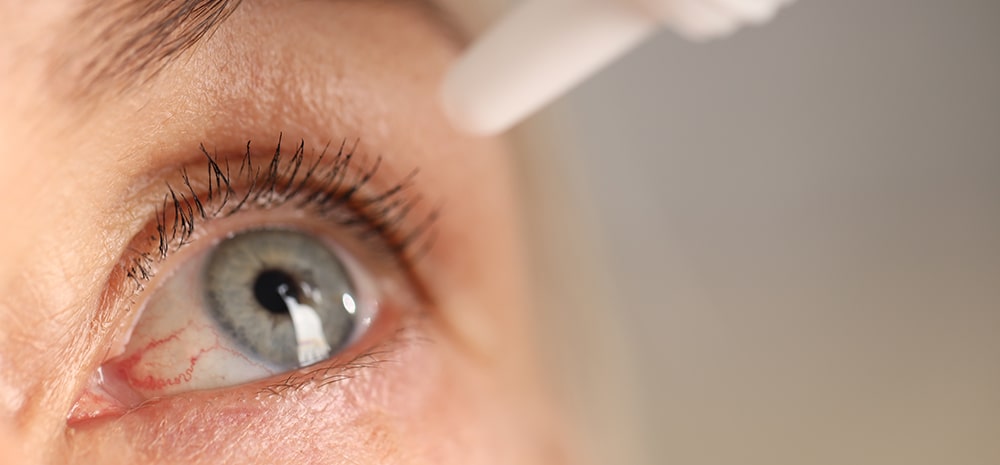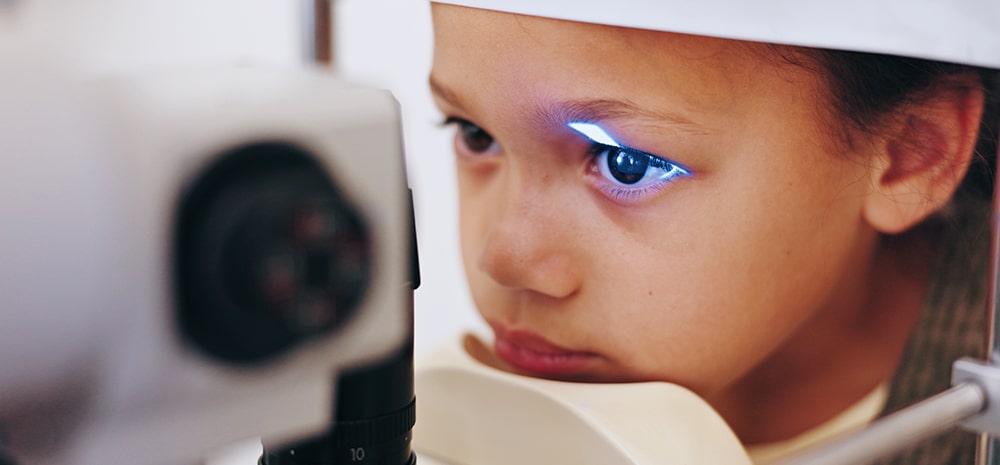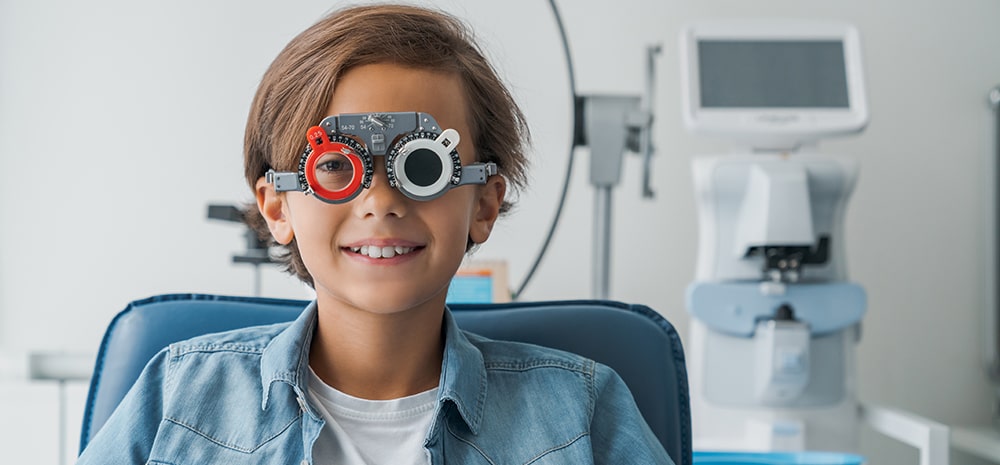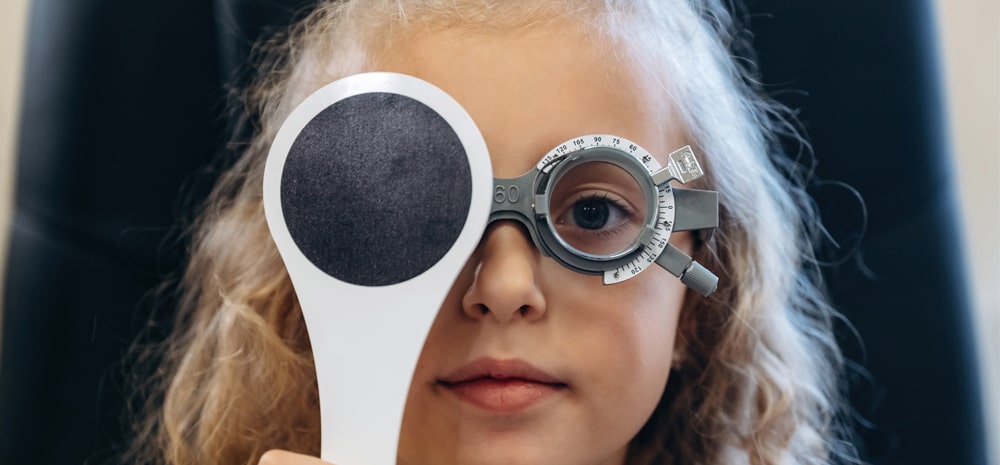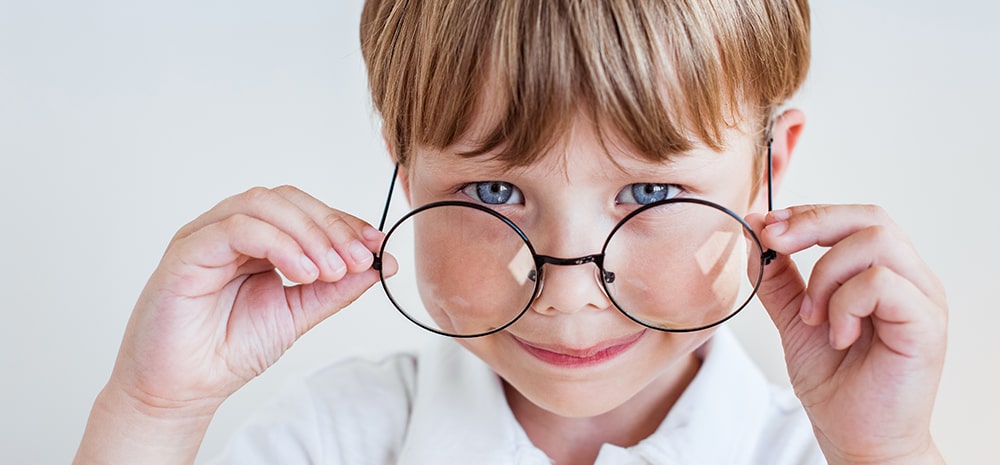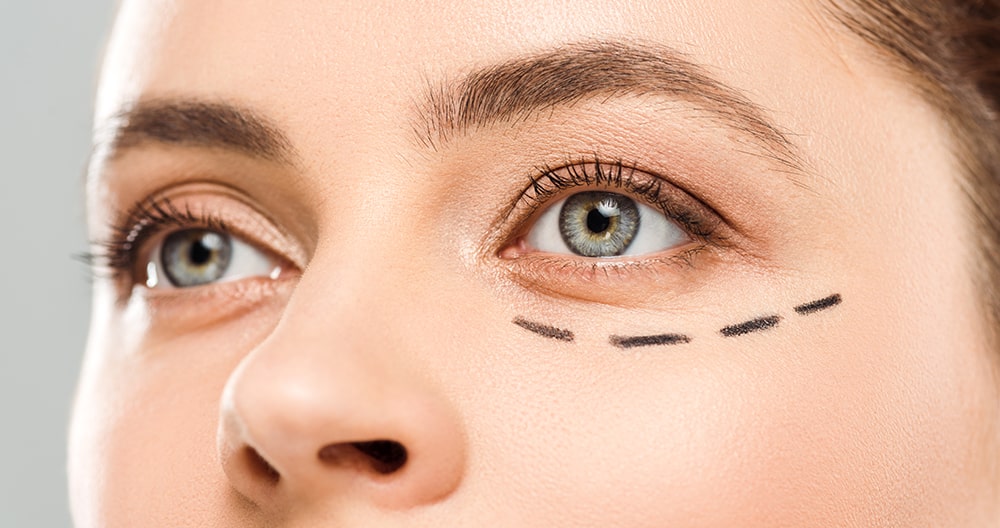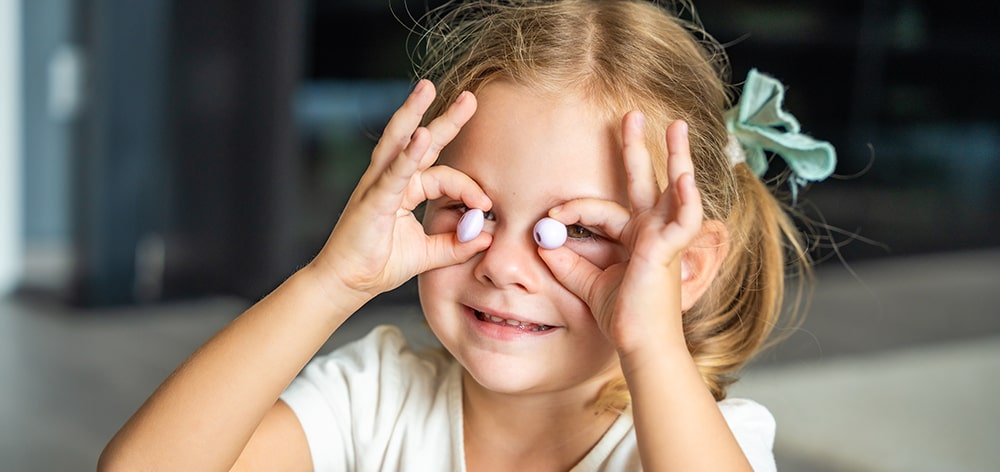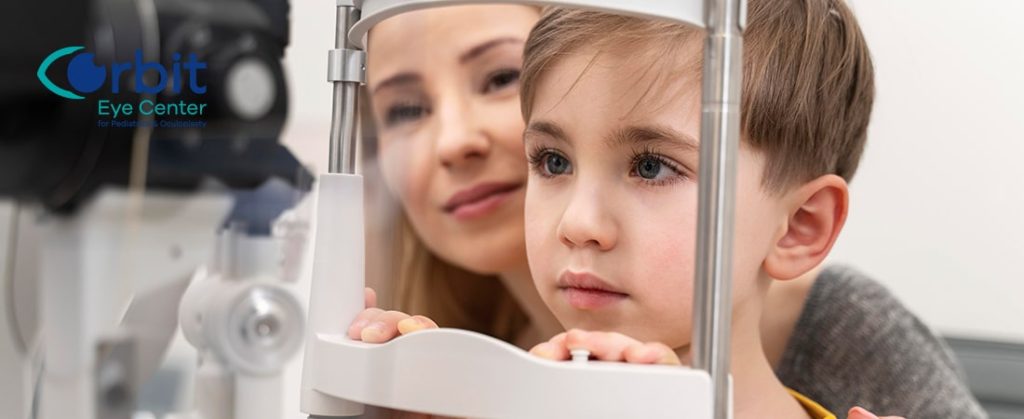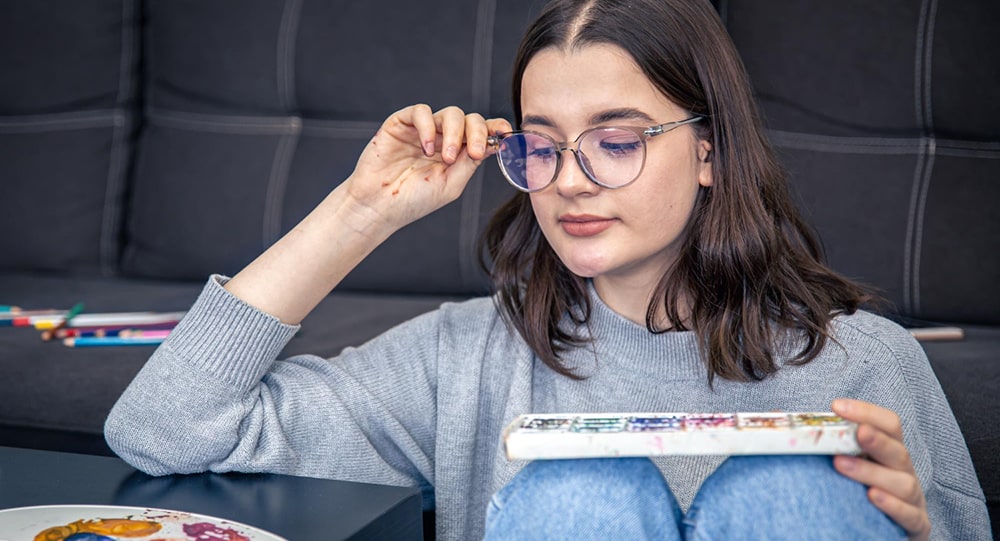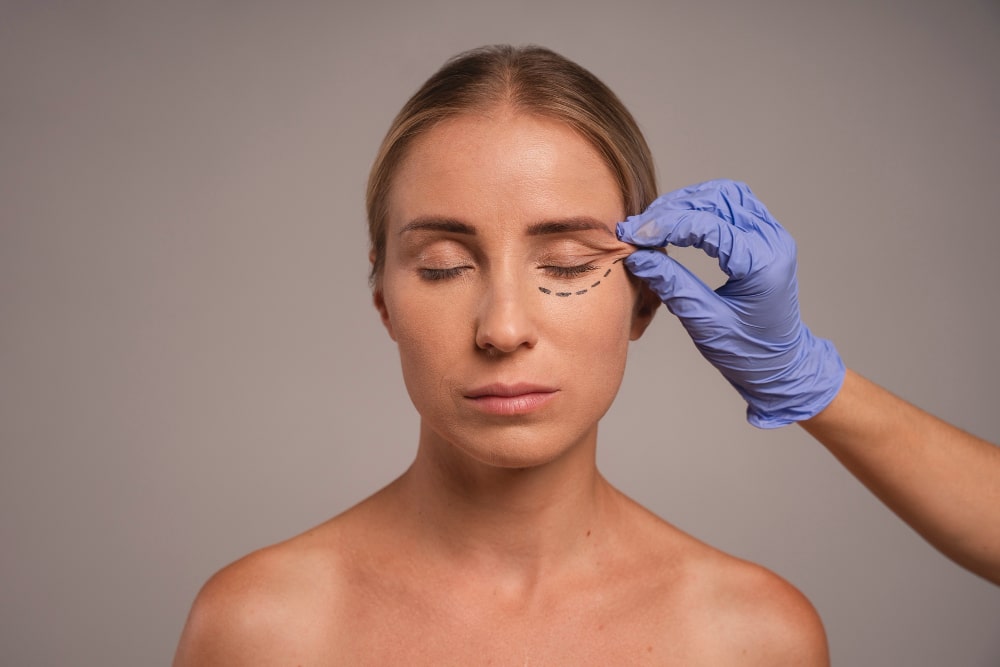Vision therapy is a new and emerging field within vision care. It is a therapeutic process much like physical therapy for the eye. The success of a visual therapy program is dependent on the active engagement of your child’s ophthalmologist, the child’s parents, and the child him/herself.
Rather than the traditional methods used to treat certain refractive vision problems (such as contacts, glasses, or even surgery), vision therapy aims to tackle these problems by way of training the visual eye system (the eyes and brain) through a series of exercises in order to work more efficiently together and correct themselves.
Visual therapy can be effective for a variety of vision problems such as:
- Eye movement disorders, also called oculomotor dysfunction.
- Focusing problems, also called accommodative problems.
- Certain types of squint, also called strabismus.
- Lazy eye, also called amblyopia.
- Minor eye alignment problems, also called phorias.
Symptoms
In children, vision problems may affect their learning process, and in-turn, their self-esteem, and quality of life in general. If you notice the following signs in your child then he/she may need visual therapy.
- Constant tearing and pooling of tears.
- Redness, swelling or fever due to an infection.
- Crusting around the baby’s eyelids.
- Mucus or pus discharge in the babies eyes.
Symptoms for a blocked tear duct have commonalities with other conditions. So be sure to bring your child to the Orbit eye Center to get a proper diagnosis by an experienced pediatric ophthalmologist.
Treatment
At the Orbit Eye Center, we customize visual therapy programs according to your child’s specific vision problems and needs. This is done by incorporating a variety of equipment and exercises to train the eye-brain coordination. Some of the equipment and such as:
- Specialized lenses, prisms, filters, patches, balance boards.
- Paper-based charts and workbooks
- Computer simulations
- Special bead-and-string device called a Brock string
Improvements can be experienced from as little as a few weeks to six months. Treatment sessions could take place at our center or at home once or twice a week under the supervision of Dr. Walid Abdalla.
Vision Therapy Department
Vision Therapy Department at Orbit Eye Center
The Vision Therapy Department at Orbit Eye Center in Dubai provides highly customized, cutting-edge treatments for your child. Our vision therapy equipment is world-class. We have specialist orthoptists and optometrists. Ms. Nabeela Sharif heads this department.
Ms. Sharif graduated in Optometry from the University of Health Sciences Pakistan. She did Master’s in Special Education with specializations in Visual Impairment and Mental Retardation.
Her areas of Expertise are Optometry, Orthoptics and Vision Therapy towards the measurement, management and rehabilitation of patients suffering from Strabismus and Binocular Vision problems as well as children with learning disabilities.
Orbit – A Leading Clinic for Vision Therapy in Dubai
Advanced Treatments & Technology
Experience High Standards of Care at Orbit Eye Center
Ask your Doctor
Yes, vision therapy can improve vision in certain cases. Vision therapy is a specialized program of exercises and activities designed to enhance visual skills and comfort. It can be beneficial for individuals with conditions like binocular vision disorders, amblyopia (lazy eye), and problems with eye teaming, tracking, and focusing.
Vision therapy is designed to treat a range of visual challenges, including binocular vision disorders, amblyopia (lazy eye), strabismus (eye misalignment), convergence insufficiency (difficulty focusing on near objects), and tracking issues.
The duration of vision therapy varies based on individual needs and the nature of the visual challenges being addressed. Typically, vision therapy programs can last anywhere from a few weeks to several months.
Vision therapy benefits individuals of all ages who experience visual challenges that impact their daily lives. This can include people with binocular vision disorders, amblyopia (lazy eye), strabismus (eye misalignment), convergence insufficiency (difficulty focusing on near objects), and other visual coordination issues.
No, vision therapy does not involve surgery. It is a non-invasive and personalized program of exercises and activities designed to improve visual skills and coordination. Vision therapy aims to enhance the brain’s ability to process visual information and improve overall visual function without the need for surgical intervention.





